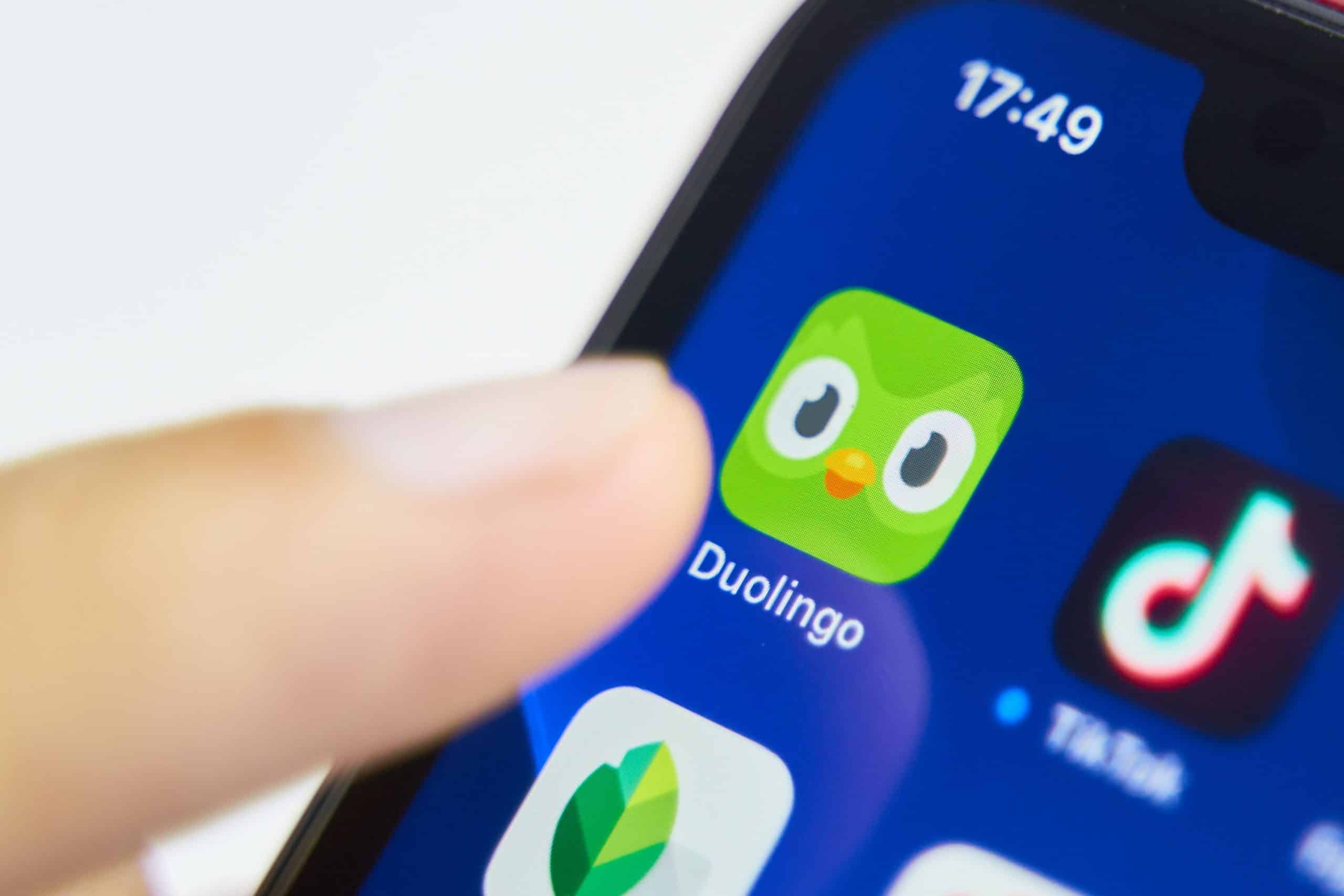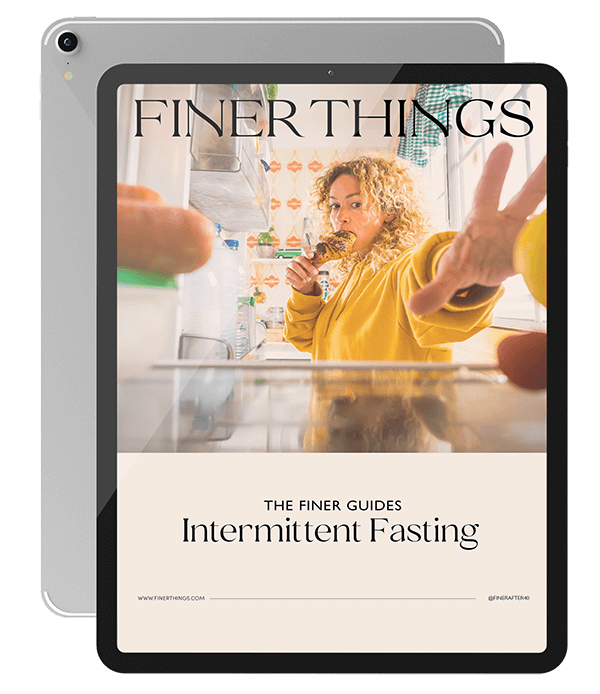Does Duolingo Really Teach You a Language?

By Franki Hanke
With gamified learning and addictive streaks, Duolingo is a popular choice for language learning, but does it really work?
Of all the language learning apps, Duolingo is likely the most recognizable. With an adorable owl as the frontman and a compulsive streak mechanic, this app has made foreign language learning part of my daily habits. But, does it work? Is Duolingo good for learning languages?
How Duolingo Teaches
Duolingo is a mobile app on iOS and Android. It offers bite-sized lessons on your new language to do every day. They use translation activities to teach sentences within an implicit, conversational context.
However, the Tips section on lessons offers a more explicit overview of the content. Within those lessons, users encounter common sentences and some wild cards like “My bear drinks beer.” because unique sentences stick better in memory.
Along with lessons, Duolingo supplements with other methods: podcasts, stories, and character reviews.

Is Duolingo Good for Learning Languages?
Of course, Duolingo has conducted its own research on this. In two studies funded by the app, they tracked multiple language skills: Listening and Reading. Across both, 500+ people participated. In the end, they concluded that Duolingo is comparable to four or five semesters of university language instruction. It’s not surprising that Duolingo would respond as such when asked, so that begs the next question.
But, what about outside research?
Other research shows Duolingo supports conscious learning, but not true competence. The results are greatly affected by the source of your motivation. Personal interest pails in comparison to an upcoming trip at keeping people going. So, maybe it’s time to plan a trip!
That addicting quality is thanks to the gamified style of lessons: “Gamification works: the learner feels a sense of achievement when getting the points and challenged when not.” Unlike a school course, Duolingo feels fun and (comparably) easier.
David Freedman for The Atlantic shared the same sentiment. When it came time to use it though, he faltered. “The app had made me a master of multiple-choice Italian.”
In the end, a phrasebook and pocket dictionary made speaking possible. The vocabulary for Duolingo helped, but without some self-study, David wouldn’t have been speaking Italian on his trip.
The consensus is clear: Duolingo is a master of motivation, but not the best for speaking your second language in the real world.
However, when our learning experience is often cut short when motivation fizzles out, Duolingo’s CEO thinks their approach is best. “The biggest problem that people trying to learn a language by themselves face is the motivation to stay with it. That’s why we spend a lot of our energy just trying to keep people hooked,” he said as quoted by Freeman.
So, Duolingo helps introduce a new habit (which is incredibly hard to do), but for success in the wild, you’ll likely need to augment with other learning too.
What apps are better than Duolingo?
It’s not just Rosetta Stone anymore! There are many different apps than Duolingo for language learning.
On Apple iPhone and Android phones, there are many free language learning apps (and some “free” apps). Here’s a quick comparison of some other options with Duolingo.
Get The Finer Life
Our Sunday email has tips and content you will love – exclusively for our subscribers.
"*" indicates required fields
The Best Language Learning Apps
→ Babbel offers 10 to 15-minute lessons with interactive dialogue. Babbel offers free trials of the first lesson for each course, but to use it fully costs $12.95 per month.
→ Memrise uses a flashcard-style approach with native speaker videos and casual, native phrases. Memrise offers some free content and a premium subscription for $8.99 per month.
→ Busuu has comprehensive language courses and interaction with native speakers for feedback. There are considerably fewer languages than Duolingo. Busuu has two paid subscription options at $9.99 and $12.99 per month.
→ HelloTalk facilitates conversion between language learners and native speakers for natural, collaborative learning. It’s free to use with a $6.99 per month ad-free subscription.
→ Pimsleur uses its own specialized method with 30-minute lessons based around conversational learning. Sentences are broken into repeatable sections to master speaking. However, there’s no speech recognition to verify you’re correct. Pimsleur offers a free trial before a $12.99 per month cost.
→ Mondly offers Conversations and Chatbot to practice pronunciation and vocabulary. There’s a free daily lesson, but the premium subscription is driven often. The upgrade costs $9.99 per month.
If you’re unsure which to use, it will depend on the language you’re learning and your personal style.
Comparing Duolingo
Duolingo uses AI and machine learning to create varied, tailored lessons for 35 languages. If you’re learning a popular language, you won’t have trouble finding a tool, but less common target languages may be hard to find off Duolingo.
Plus, Duolingo is entirely free while the premium subscription removes ads and ads features, but all lessons are available with the free version.
Duolingo has more resources for some languages than others. For example, the Stories tab is only available for native English speakers learning Spanish, Portuguese, French, German, and Italian. Different languages, like Japanese, Chinese, and Russian lack these other options for broader learning. For other native languages, most only have Stories if they are learning English.
Duolingo has short, bite-sized lessons that foster daily learning. For those with motivation problems, Duolingo is a habit-creator!
Plus, Duolingo tends to balance reading and speaking practice. Other apps will focus on different methods and may favor a different skill set.
However, for deep and comprehensive learning for conversational use, it may not be enough. Especially for languages without extra learning options, another app may be a better tool.
No matter how you choose to learn, it will be hard. Learning a new language is a challenge that takes time and dedication, but it can be incredibly worth it. Good luck!

Want a Free Guide?
You will receive our free 19-page guide and access to our exclusive content, private invitations, and tips you’ll love.
"*" indicates required fields
Facebook Group
